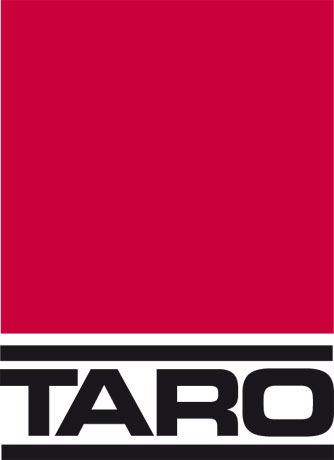预约演示
更新于:2025-05-07
BCHE
更新于:2025-05-07
基本信息
别名 Acylcholine acylhydrolase、BCHE、Butyrylcholine esterase + [10] |
简介 Esterase with broad substrate specificity. Contributes to the inactivation of the neurotransmitter acetylcholine. Can degrade neurotoxic organophosphate esters. |
关联
25
项与 BCHE 相关的药物靶点 |
作用机制 BChE抑制剂 |
在研适应症 |
非在研适应症- |
最高研发阶段批准上市 |
首次获批国家/地区 美国 |
首次获批日期1982-08-02 |
作用机制 AChE抑制剂 [+1] |
在研机构 |
原研机构 |
在研适应症 |
非在研适应症- |
最高研发阶段申请上市 |
首次获批国家/地区- |
首次获批日期1800-01-20 |
18
项与 BCHE 相关的临床试验CTR20222356
一项单中心、开放、单臂研究评估在中国成年健康志愿者中氟伏沙明和利福平对琥珀八氢氨吖啶片的药物-药物相互作用
主要目的:
(1)评价琥珀八氢氨吖啶片单独使用和与氟伏沙明合用时在中国成年健康受试者中的药代动力学特征;
(2)评价琥珀八氢氨吖啶片单独使用和与利福平合用时在中国成年健康受试者中的药代动力学特征。
次要目的:
(1)评价琥珀八氢氨吖啶片单独使用和与氟伏沙明合用时在中国成年健康受试者中的安全性和耐受性特征;
(2)评价琥珀八氢氨吖啶片单独使用和与利福平合用时在中国成年健康受试者中的安全性和耐受性特征。
开始日期2022-09-26 |
申办/合作机构  长春华洋高科技有限公司 长春华洋高科技有限公司 [+1] |
CTR20202210
[14C]琥珀八氢氨吖啶在中国成年男性健康志愿者体内吸收、代谢和排泄临床试验——[14C]琥珀八氢氨吖啶人体物质平衡与生物转化研究临床试验
主要目的:
评价中国男性健康志愿者单次口服[14C]琥珀八氢氨吖啶的物质平衡及生物转化途径。
次要目的:
评价琥珀八氢氨吖啶在人体内的药代动力学整体特征及安全性。
开始日期2020-11-23 |
申办/合作机构  长春华洋高科技有限公司 长春华洋高科技有限公司 [+1] |
CTR20200956
单中心、随机、双盲、安慰剂对照的评估健康成人单次口服琥珀八氢氨吖啶片4 mg及12 mg对QT间期延长的影响
主要目的:评估中国成年健康志愿者单次口服琥珀八氢氨吖啶片4 mg及12 mg对QT间期延长的影响。 次要目的:评估单次口服琥珀八氢氨吖啶片4 mg及12 mg情况下,血药浓度与QTc间期变化的关系;药代动力学(PK)特征;受试者的耐受性;如有主要代谢产物将评价其对QT间期延长的影响。
开始日期2020-08-06 |
申办/合作机构  长春华洋高科技有限公司 长春华洋高科技有限公司 [+1] |
100 项与 BCHE 相关的临床结果
登录后查看更多信息
100 项与 BCHE 相关的转化医学
登录后查看更多信息
0 项与 BCHE 相关的专利(医药)
登录后查看更多信息
6,674
项与 BCHE 相关的文献(医药)2025-08-01·Phytochemistry
Asperstrins A−H: Epipolythiodioxopiperazines from the endophytic fungus Aspergillus nidulans
Article
作者: Dong, Jiaxin ; Chen, Chunmei ; Zhang, Jiajun ; Zhu, Hucheng ; Sun, Weiguang ; Zhang, Yonghui ; Li, Qin ; Fu, Aimin
2025-08-01·Food Chemistry
A highly selective ratiometric fluorescent probe for butyrylcholinesterase: Applications in quantification, residue screening, and toxicological studies of organophosphorus pesticides
Article
作者: Zeng, Chaoyuan ; Nie, Hailiang ; Bai, Jie ; Wang, Chaojun ; Tao, Chenchuang ; Li, Linsen
2025-08-01·Current Drug Safety
Inhibitory Effects of Aspirin and Ibuprofen Overdose on Cholinesterase Activity: In Vivo and In Vitro Studies
Article
作者: Saberi-Hasanabadi, Parisa ; Mohammadi, Hamidreza ; Dezfulynejad, Hesam
42
项与 BCHE 相关的新闻(医药)2025-04-27
·精准药物
近日,在国际权威药物化学期刊《European Journal of Medicinal Chemistry》上发表了一篇题为“四唑:药物设计中的多功能基团”的综述论文,系统总结了四唑(Tetrazoles)在药物设计中的多潜能应用及其最新研究进展。四唑作为一种具有独特理化性质和生物电子等排特性的五元杂环化合物,在药物化学领域备受关注。本文综述了近年来四唑在多种疾病治疗中的应用,包括癌症、细菌、病毒和真菌感染、哮喘、高血压、阿尔茨海默病、疟疾和结核病等。尽管四唑结构的药物在临床应用中逐渐增多,但其构效关系、多机制作用、结合模式和生化特性仍待深入研究。文章详细探讨了四唑生物电子等排体在优化先导化合物中的潜力,分析了其在创新疗法中的应用趋势、优势、局限性和挑战,并对未来研究方向提出了展望。图片来源:EJMC01BACKGROUND背景简介在药物设计和开发过程中,从发现潜在的先导化合物到优化其结构以提高生物活性、生物相容性和药代动力学特性,是一个复杂且漫长的过程。其中,一个关键策略是通过引入生物电子等排体(bioisosteres)来改善药物分子的性能。生物电子等排体是指那些在结构上与原分子不同,但在生物活性上具有相似性质的化学基团。四唑(tetrazole)作为一种重要的生物电子等排体,因其独特的物理化学性质和生物活性,近年来在药物设计中受到了广泛关注。四唑可以替代羧酸和酰胺基团,从而提高化合物的代谢稳定性和其他药代动力学特性。此外,四唑衍生物在多种疾病治疗中展现出多样化的药理活性,包括抗癌、抗菌、抗病毒、抗真菌、降血压和抗哮喘等。尽管如此,目前对于四唑类化合物的构效关系、多机制作用、结合模式和生化特性的理解仍然有限。因此,深入研究四唑在药物设计中的应用,探索其潜在的优化策略,对于开发新型药物具有重要意义。图片来源:EJMC在对四唑类化合物的出版物进行分析时,研究者发现自1885年首次合成四唑以来,其在药物设计中的应用逐渐受到关注。近年来,四唑作为药物设计中的热门结构单元,相关研究的年度发表文章数量呈上升趋势,其中美国在四唑相关研究的发表数量上位居全球首位。此外,与四唑相关的专利数量也显著增加,这表明除了公开报道的研究成果外,还有许多潜在的四唑类药物候选物可能正在进行保密的临床前或临床试验。通过对当前文献的系统分析,研究者发现四唑类化合物主要应用于医学、化学、生物化学和药理学等领域,其中药物化学领域对四唑的应用尤为关键。四唑的合成方法也得到了广泛研究,涉及多种起始材料,这些研究为开发具有多生物活性的四唑类化合物奠定了基础。图片来源:EJMC02Drug Design四唑在抗微生物药物研发的应用四唑类化合物在抗微生物药物研发中展现出巨大潜力,尤其在抗菌、抗病毒和抗寄生虫领域。近年来,随着抗菌药物耐药性问题的加剧,开发新型抗菌药物迫在眉睫。四唑类化合物因其独特的结构和生物活性,被广泛应用于抗菌药物的研发。研究表明,四唑衍生物可以有效抑制多种细菌和真菌的生长,包括一些耐药菌株。例如,某些四唑类化合物对耐多药的结核分枝杆菌表现出显著的抑制活性,其抗菌效果比传统的一线抗结核药物更强。此外,四唑类化合物在抗病毒药物研发中也取得了重要进展。它们被用于开发针对HIV、流感病毒等多种病毒的抑制剂,能够改善药物的物理化学性质并增强抗病毒活性。例如,通过将四唑基团引入到HIV逆转录酶抑制剂中,可以提高药物的代谢稳定性。在抗寄生虫领域,四唑类化合物也被证明具有显著的活性,尤其是在抗疟疾药物的研发中。四唑基团与奎宁啉类抗疟药物结合,可增强药物的疗效并降低耐药性。这些研究结果表明,四唑类化合物在抗微生物药物研发中具有广阔的应用前景,为应对日益严重的微生物耐药性问题提供了新的策略和希望。图片来源:EJMC①含有四唑环的抗菌药物四唑类化合物作为抗菌药物的研究进展表明,其在抗菌活性和机制方面具有显著优势。近年来,研究者们发现四唑衍生物能够有效抑制多种细菌和真菌的生长,包括一些耐药菌株。例如,某些四唑类化合物对耐多药的结核分枝杆菌表现出显著的抑制活性,其抗菌效果比传统的一线抗结核药物更强。此外,通过结构优化,研究者们进一步提高了四唑类化合物的抗菌活性。例如,通过改变四唑环上的取代基,可以显著增强其对多种临床菌株的抗菌活性,同时保持较低的细胞毒性。这些研究不仅揭示了四唑类化合物在抗菌领域的潜力,还为开发新型抗菌药物提供了重要的结构基础和理论支持。具体来看,研究者们在四唑类抗菌药物的研发中取得了一系列重要成果。例如,Szulczyk等人报道了一类新的四唑类抗结核药物,其中化合物1a和1b对耐多药的结核分枝杆菌表现出高达16倍的抑制活性,优于一线抗结核药物异烟肼、利福平和乙胺丁醇。这些化合物表现出对结核菌的高选择性,而对其他常见细菌(如金黄色葡萄球菌、大肠杆菌等)则无明显抑制作用。进一步的结构优化表明,通过在四唑环上引入不同的取代基,可以显著提高其抗菌活性。例如,化合物2a、2b和2c对多种临床菌株表现出良好的抗菌活性,MIC值在2-32 μg/ml之间,且对哺乳动物细胞系无明显毒性,显示出作为新型抗菌药物的潜力。此外,四唑类化合物在抗菌机制研究方面也取得了重要进展。例如,Roszkowski等人报道的四唑类化合物3a、3b和3c对多种细菌(如金黄色葡萄球菌、表皮葡萄球菌、大肠杆菌和铜绿假单胞菌)表现出广谱抗菌活性,MIC值在0.4-25.6 μg/ml之间。特别是化合物3c,其对某些金黄色葡萄球菌菌株的抑制活性(MIC 0.1-0.2 μg/ml)优于环丙沙星(MIC 0.125-0.5 μg/ml)。机制研究表明,这些化合物通过抑制细菌的DNA gyrase和拓扑异构酶IV发挥作用,这可能是其抗菌活性的分子基础。综上所述,四唑类化合物在抗菌药物研发中展现出巨大的潜力。通过结构优化和机制研究,研究者们不仅提高了四唑类化合物的抗菌活性,还揭示了其作用机制,为开发新型抗菌药物提供了重要的理论基础和实践指导。图片来源:EJMC②四唑在抗病毒药物研发中的应用四唑类化合物在抗病毒药物研发中展现出显著的潜力,尤其是在改善药物的物理化学性质和增强抗病毒活性方面。近年来,研究者们发现四唑基团可以有效地替代某些天然化合物中的功能基团,从而提高其代谢稳定性和抗病毒活性。例如,通过将四唑基团引入HIV逆转录酶抑制剂阿昔洛韦中,可以显著提高其代谢稳定性。此外,含有四唑基团的肽模拟物被证明是有效的HIV蛋白酶抑制剂,显示出低毒性且具有良好的抗病毒效果。研究还表明,四唑类化合物在抗流感病毒、丙型肝炎病毒和HIV病毒等方面具有广泛的活性。例如,某些四唑衍生物对H1N1流感病毒表现出比已知药物更优越的活性,同时具有较低的毒性。此外,四唑类化合物与1,2,3-三唑的组合已被证明可以有效抑制SARS-CoV-2病毒的主要蛋白酶,显示出其在抗新冠病毒药物研发中的潜在应用价值。这些研究结果表明,四唑类化合物在抗病毒药物研发中具有广阔的应用前景,为开发新型抗病毒药物提供了重要的结构基础和理论支持。图片来源:EJMC③四唑在抗寄生虫药物研发中的应用四唑衍生物在抗寄生虫药物研发中展现出显著的潜力,尤其是在抗疟疾和抗真菌领域。近年来,研究者们发现四唑基团可以显著增强抗疟疾药物的活性和降低耐药性。例如,将四唑基团引入到奎宁啉类抗疟药物中,不仅提高了药物的生物利用度和靶向传递能力,还能有效抑制疟原虫的多个生长阶段,为开发新型抗疟疾药物提供了有力支持。此外,四唑衍生物在抗真菌领域也取得了重要进展。一些研究发现,四唑类化合物对多种真菌表现出广谱的抗真菌活性,尤其是对耐药性真菌株具有显著的抑制效果。例如,某些四唑-吡唑衍生物对耐氟康唑的白色念珠菌和光滑念珠菌表现出比现有药物更优越的抗真菌活性,且具有较低的细胞毒性和药物相互作用风险。这些研究结果表明,四唑衍生物在抗寄生虫药物研发中具有广阔的应用前景,为开发新型抗疟疾和抗真菌药物提供了重要的结构基础和理论支持。图片来源: EJMC03Drug Design四唑在抗增殖药物研发的应用四唑类化合物在抗增殖药物研发中展现出显著的潜力,尤其是在抗癌药物开发领域。近年来的研究表明,四唑衍生物能够有效抑制多种癌细胞的增殖,并且具有较低的细胞毒性。这些化合物通过与多种抗癌药物的结构结合,可以显著增强其对癌细胞的抑制作用,同时改善药物的药代动力学特性和生物利用度。例如,某些四唑-吡啶类化合物对多种癌细胞系表现出强效的抑制活性,其对Aurora激酶A的抑制活性可达纳摩尔级别。Aurora激酶A在多种癌症中过表达,因此这些四唑-吡啶类化合物具有潜在的临床应用价值。此外,四唑类化合物在抑制肿瘤细胞的耐药性方面也显示出独特的优势。例如,Encequidar(HM30181)作为一种新型的P-糖蛋白抑制剂,能够显著提高P-gp底物药物(如紫杉醇)的口服生物利用度,同时对癌细胞的抑制活性显著优于其他新一代P-gp抑制剂。研究还表明,四唑类化合物的结构-活性关系(SAR)对于其抗增殖活性至关重要。例如,某些四唑-喹啉类化合物对多种癌细胞系表现出良好的抗增殖活性,且其活性与药物的电子性质和取代基位置密切相关。通过改变四唑环上的取代基,可以显著增强其对癌细胞的抑制作用。此外,四唑类化合物在抗肿瘤药物研发中还展现出良好的生物相容性和较低的毒性,这使得它们在临床应用中具有潜在的优势。例如,某些四唑-苯并噻唑类化合物作为天然化合物Combretastatin A-4的衍生物,虽然在活性上略逊于母体化合物,但通过结构优化,可以开发出不易发生光异构化的衍生物,从而提高药物的稳定性和安全性。此外,四唑类化合物在抗肿瘤药物研发中还展现出良好的生物相容性和较低的毒性,为开发新型抗癌药物提供了重要的结构基础和理论支持。这些研究结果表明,四唑类化合物在抗增殖药物研发中具有广阔的应用前景。通过深入研究四唑类化合物的构效关系,优化其化学结构,可以开发出具有更高活性、更低毒性和更好药代动力学特性的新型抗癌药物。这些研究不仅为四唑类化合物在抗癌药物研发中的应用提供了重要的理论基础,也为未来抗癌药物的开发提供了新的思路和方向。图片来源:EJMC04Drug Design四唑在多系统疾病中的潜力①四唑在中枢神经系统疾病的应用四唑类化合物在中枢神经系统疾病治疗中展现出广泛的应用潜力,尤其是在阿尔茨海默病、抗惊厥、抗抑郁和镇痛等领域。在阿尔茨海默病治疗方面,四唑类化合物被开发为β-分泌酶和γ-分泌酶的抑制剂,这些酶在β-淀粉样蛋白的合成中起关键作用。例如,含有四唑基团的五肽化合物显示出低纳摩尔级别的抑制活性,与已知的乙酰胆碱酯酶和丁酰胆碱酯酶抑制剂相当。此外,四唑类化合物还被研究作为抗惊厥药物,其中一些化合物通过与谷氨酸受体或GABA受体相互作用,展现出良好的抗惊厥活性和较低的神经毒性。在抗抑郁领域,含有四唑基团的化合物能够抑制单胺氧化酶A,从而增加神经递质的水平,显示出潜在的抗抑郁和抗焦虑效果。在镇痛方面,四唑类化合物通过抑制脂肪酰胺水解酶或作为阿片受体激动剂,提高脑内内源性大麻素水平,从而发挥镇痛和抗焦虑作用。这些研究结果表明,四唑类化合物在中枢神经系统疾病的治疗中具有广阔的应用前景,为开发新型药物提供了重要的结构基础和理论支持。图片来源:EJMC②四唑在抗炎药物开发中的应用四唑类化合物在抗炎药物开发中展现出显著的潜力,其独特的化学结构使其能够有效抑制炎症相关酶的活性,从而发挥抗炎作用。研究表明,四唑类化合物可以通过抑制环氧化酶(COX)的活性来减少前列腺素的合成,这是非甾体抗炎药(NSAIDs)发挥抗炎作用的关键机制。例如,某些1,5-二芳基四唑类化合物对COX-2的抑制活性与已知的抗炎药物相当,且其活性取决于苯环上取代基的性质和位置。此外,四唑类化合物还可以通过抑制其他炎症相关酶的活性来发挥抗炎作用,例如抑制5-脂氧合酶(5-LOX),从而减少白三烯的生成。这些研究结果表明,四唑类化合物在抗炎药物开发中具有广阔的应用前景,为开发新型抗炎药物提供了重要的结构基础和理论支持。通过进一步优化四唑类化合物的结构,可以开发出具有更高活性、更低毒性和更好药代动力学特性的新型抗炎药物。图片来源:EJMC③四唑在抗氧化领域的应用四唑类化合物在抗氧化领域展现出显著的潜力,其独特的化学结构使其能够有效清除自由基,从而发挥抗氧化作用。研究表明,四唑类化合物通过多种机制发挥抗氧化活性,包括直接清除自由基和抑制氧化酶的活性。例如,四唑类化合物如四唑甾体衍生物和四唑核苷酸衍生物表现出良好的抗氧化活性,其作用机制类似于常见的抗氧化剂如丁基羟基甲苯。此外,某些四唑类化合物如四唑基吡啶衍生物在抗氧化活性测试中显示出比丁基羟基甲苯更强的效果。这些研究结果表明,四唑类化合物在抗氧化药物开发中具有广阔的应用前景,为开发新型抗氧化剂提供了重要的结构基础和理论支持。通过进一步优化四唑类化合物的结构,可以开发出具有更高活性、更低毒性和更好生物利用度的新型抗氧化剂。图片来源:EJMC05Drug Design四唑基团的引入在药物设计中带来了显著的益处四唑基团的引入在药物设计中带来了显著的益处,这些益处不仅体现在提高药物的代谢稳定性和生物利用度上,还表现在增强药物的活性和降低毒性方面。例如,通过将四唑基团引入到某些药物分子中,可以显著延长药物的作用时间,提高其在体内的稳定性和生物利用度。在一些研究中,四唑基团的引入使得药物的抑制活性提高了数倍,甚至数十倍,这主要是由于四唑基团增加了药物的亲脂性,从而提高了其细胞渗透性。此外,四唑基团的引入还可以改善药物的药代动力学特性,使其在体内的分布和代谢更加合理。例如,洛沙坦(Losartan)作为一种含有四唑基团的抗高血压药物,通过替换羧基团为四唑基团,显著提高了其代谢稳定性和生物利用度。这些研究结果表明,四唑基团的引入在药物设计中具有重要的意义,为开发新型药物提供了重要的策略和方法。通过进一步研究四唑基团在药物分子中的作用机制,可以更好地利用其优势,开发出具有更高活性、更低毒性和更好药代动力学特性的新型药物。图片来源:EJMC展望四唑类化合物因其独特的物理化学性质和多样的生物活性,在药物化学领域展现出广泛的应用前景,涵盖抗菌、抗癌、抗炎、心血管疾病治疗等多个领域。然而,尽管四唑类化合物的研究取得了显著进展,但仍存在一些局限性。例如,四唑类化合物在稳定性、溶解性和靶向特异性方面仍面临挑战,且目前对于四唑类化合物的生物活性评估和与非四唑类化合物的对比研究在文献中提及较少。此外,四唑类化合物的合成方法虽然多样,但在生物稳定性、创新制剂、结构优化以降低毒性以及创新药物递送系统方面的研究仍需加强。展望未来,四唑类化合物的研究将继续聚焦于从多种起始材料合成四唑的方法,以期开发出具有更好药理学特性和更低副作用的新型四唑衍生物。同时,需要更全面地研究四唑在改善药物稳定性、生物利用度、安全性和渗透性方面的作用,并提供更多关于引入四唑组分后药物药代动力学或疗效改善的实验证据。未来的研究应更加系统地进行构效关系(SAR)研究,通过在每个合成方法中仅替换一个片段/基团/结构单元,并比较含四唑和不含四唑的化合物的生物活性,从而更清晰地阐明四唑生物电子等排体在生物分子中的关键作用。参考来源:https://doi.org/10.1016/j.ejmech.2024.116870声明:发表/转载本文仅仅是出于传播信息的需要,并不意味着代表本公众号观点或证实其内容的真实性。据此内容作出的任何判断,后果自负。若有侵权,告知必删!长按关注本公众号 粉丝群/投稿/授权/广告等请联系公众号助手 觉得本文好看,请点这里↓
2025-02-07
·医药观澜
▎药明康德内容团队报道
中枢神经系统(CNS)和精神系统疾病往往疾病机制复杂、新药研发难度大,患者存在未被满足的临床需求。本文将盘点9款有望在2025年获NMPA批准上市的CNS领域新药*,它们覆盖的适应症包括精神分裂症、阿尔茨海默病、嗜睡、失眠症等等。(*本文统计范围为于2023年1月~2025年1月期间向CDE递交上市申请的新药;新药仅统计注册分类为1类、3.1类、5.1类的新药;仅盘点有望首次获批的新药,不含新适应症)
图片来源:123RF
百时美施贵宝、再鼎医药:呫诺美林曲司氯铵
作用机制:M1/M4型毒蕈碱乙酰胆碱受体激动剂和毒蕈碱受体拮抗剂的组合
适应症:精神分裂症
2025年1月,百时美施贵宝和再鼎医药共同申报的5.1类新药呫诺美林曲司氯铵胶囊上市申请获得CDE受理。这是一款用于治疗精神分裂症的新药KarXT,为一种口服M1/M4型毒蕈碱乙酰胆碱受体激动剂和毒蕈碱受体拮抗剂的组合。与目前主要针对多巴胺或血清素受体的抗精神病药物不同,呫诺美林优先刺激中枢神经系统中与这些疾病有关的毒蕈碱受体。2024年9月,美国FDA已经批准该产品用于治疗成人精神分裂症。再鼎医药拥有在大中华区开发、生产和商业化KarXT的权益。再鼎医药在今年的摩根大通医疗健康年会(JPM)中曾表示,KarXT有望于2025~2026年获NMPA批准上市。
扬子江药业:法赞雷生
作用机制:双重食欲素受体拮抗剂
适应症:失眠症
2025年1月,扬子江药业全资子公司海岸药业申报的1类新药法赞雷生片上市申请获得CDE受理。公开资料显示,这是一款双重食欲素受体拮抗剂(YZJ-1139片),它能够同时抑制食欲素受体1型和2型,加快睡眠速度,延长深睡时间。扬子江药业已经完成一项YZJ-1139片治疗失眠症的3期临床试验,针对的适应症为以入睡困难/睡眠维持障碍为特征的失眠症。
梯瓦:瑞玛奈珠单抗
作用机制:CGRP单克隆抗体
适应症:偏头痛预防性治疗
2025年1月,梯瓦(Teva)公司申报的3.1类新药瑞玛奈珠单抗注射液(fremanezumab)上市申请获得CDE受理。这是一种人源化单克隆抗体,它可选择性结合CGRP配体,并阻断两种CGRP亚型(α-和β-CGRP)与受体结合。该产品此前已在美国和欧盟获批用于成年患者偏头痛的预防性治疗。该产品有两种给药方案,可每月一次皮下注射(225mg),或每3个月一次皮下注射(675mg)。此外,其不仅可由医疗专业人员给药,亦可在家由患者或护理人员给药。
翼思生物:西诺氨酯
作用机制:抑制电压门控钠通道和正变构调节GABAA受体
适应症:癫痫
2024年12月,SK Life Science和翼思生物共同申报的西诺氨酯片(cenobamate)上市申请获得CDE受理。西诺氨酯是翼思生物2021年从SK生物医药授权引进的CNS创新药物,它可通过抑制电压门控钠通道和正变构调节GABAA受体来减少癫痫发作甚至实现零发作。西诺氨酯片自2019~2021年在美国、欧盟和英国先后获批上市以来,已被广泛用于治疗成人癫痫患者的部分性发作。
翼思生物:索安非托
作用机制:双效多巴胺和去甲肾上腺素再摄取抑制剂
适应症:过度嗜睡
2024年12月,翼思生物等公司共同申报的索安非托片(solriamfetol)上市申请获得CDE受理。索安非托是一种双效多巴胺和去甲肾上腺素再摄取抑制剂,该产品用于治疗与发作性睡病或阻塞性睡眠呼吸暂停综合征(OSA)相关的白天过度嗜睡。发作性睡病是一种失能性神经疾病,患者无法正常调节睡眠与苏醒的循环,导致出现嗜睡症状。索安非托可通过双重机制起到促进患者保持清醒的作用,包括引起多巴胺和去甲肾上腺素水平上升。该产品不会刺激多巴胺释放,从而减轻患者上瘾的风险。
通化金马:八氢氨吖啶
作用机制:乙酰胆碱酯酶抑制剂
适应症:阿尔茨海默病
2024年8月,通化金马药业申报的1类新药琥珀八氢氨吖啶片的上市申请获得受理。这是通化金马开发的一款小分子乙酰胆碱酯酶抑制剂,可以同时抑制乙酰胆碱酯酶和丁酰胆碱酯酶,主要开发用于治疗轻中度阿尔茨海默病。
先声药业:达利雷生
作用机制:双重食欲素受体拮抗剂
适应症:失眠症
2024年7月,先声药业联合申报的盐酸达利雷生片新药上市申请获得CDE受理。盐酸达利雷生片是Idorsia公司开发的抗失眠药,为一款双食欲素受体拮抗剂。先声药业拥有该产品在大中华地区开发和商业化的独家权利。与传统镇静催眠药物通过镇静大脑来促进睡眠的疗法不同,达利雷生通过阻断食欲素神经肽(食欲素A和食欲素B)与其受体的结合,降低过度活跃的中枢觉醒,帮助患者入睡和保持睡眠。由于其仅阻断食欲素受体的启动,因此可减少唤醒驱动,诱导睡眠发生,而不改变睡眠阶段的比例,且没有次日残留效应。
卫材(Eisai):莱博雷生
作用机制:双重食欲素受体拮抗剂
适应症:失眠症
2024年1月,卫材申报的莱博雷生片(lemborexant)上市申请获CDE受理。莱博雷生片是一款双重食欲素受体拮抗剂,此前已经在中国香港地区获批上市,用于治疗成人失眠,特别是入睡困难和/或睡眠维持困难。莱博雷生是一款小分子药物,其通过竞争性结合两种食欲素受体亚型OX1R和OX2R,抑制食欲素神经传递,调节睡眠-觉醒节律。作为一种竞争性拮抗剂,莱博雷生对OX2R具有更强的抑制作用,可抑制REM和非REM睡眠驱动,从而可以为患者提供更快的睡眠开始、更好的睡眠维持。
阿斯利康(AstraZeneca):瑞利珠单抗
作用机制:长效补体C5蛋白抑制剂
适应症:视神经脊髓炎谱系疾病等
瑞利珠单抗(ravulizumab)是阿斯利康开发的一款长效补体C5蛋白抑制剂。它可提供即时、完全和持续的补体抑制。独特的设计使该产品具有比第一代C5补体抑制剂更长的半衰期,成人患者在初始剂量给药后,后续只需要每8周静脉注射一次。该产品已经获FDA批准治疗阵发性睡眠性血红蛋白尿症、非典型溶血性尿毒症综合征、重症肌无力、视神经脊髓炎谱系疾病等。视神经脊髓炎谱系疾病(NMOSD)是免疫介导的中枢神经系统炎性脱髓鞘疾病,以视神经炎和脊髓炎为主要临床征象,病因主要与水通道蛋白4(AQP4)抗体相关。在中国,该产品的首个上市申请已经于2023年12月获得CDE受理,第二项上市申请也已经于2024年10月获CDE受理。
希望这些新药早日来到患者身边,尽快造福患者!
参考资料:
[1]中国国家药监局药品审评中心(CDE)官网.
[2]各公司官网及公开资料
本文来自药明康德内容团队,欢迎个人转发至朋友圈,谢绝媒体或机构未经授权以任何形式转载至其他平台。转载授权或其他合作需求,请联系wuxi_media@wuxiapptec.com。
免责声明:药明康德内容团队专注介绍全球生物医药健康研究进展。本文仅作信息交流之目的,文中观点不代表药明康德立场,亦不代表药明康德支持或反对文中观点。本文也不是治疗方案推荐。如需获得治疗方案指导,请前往正规医院就诊。
上市批准临床3期
2024-12-22
阿尔茨海默病(AD),俗称“老年痴呆”,是一种起病隐匿的进行性发展的神经系统退行性疾病。以记忆障碍、失语、失用、失认、执行功能障碍以及人格和行为改变等全面性痴呆表现为特征。我国是全球阿尔茨海默症(AD)患病人数多的国家之一,根据《2022 年中国阿尔茨海默病报告》统计,我国60岁及以上人群中轻度认知障碍有3877万,痴呆患者约1507万,其中AD源性轻度认知障碍患者达1300万,AD 痴呆患者达983万。可见,在AD领域,我国药物需求巨大。据悉,近日,在该领域,我国又迎来一款创新药。
12月18日,礼来宣布,公司1类新药donanemab注射液(多奈单抗注射液)上市申请已获得中国国家药监局(NMPA)批准。根据NMPA药品审评中心(CDE)优先审评公示可知,该药本次获批用于治疗早期阿尔茨海默病,即治疗应该在患者处在疾病轻度认知障碍阶段或轻度痴呆阶段时开始。
资料显示,Donanemab是一种用于静脉输注的药物,每四周注射一次。该产品已经于2024年7月获美国FDA批准,用于治疗出现早期症状的阿尔茨海默病成年人(商品名:Kisunla)。礼来此前新闻稿表示,donanemab是有证据表明在淀粉样斑块清除后可停止治疗的淀粉样斑块靶向疗法,因此预计该疗法可以降低治疗成本并减少输液次数。
据推文介绍,淀粉样蛋白是身体自然产生的一种蛋白质,它可以凝聚在一起形成淀粉样斑块。大脑中淀粉样蛋白斑块的过度积聚可能导致与阿尔茨海默病相关的记忆和思考问题。Donanemab可以帮助身体清除过度积聚的淀粉样蛋白斑块,并减缓可能导致人们记不住信息、做饭、管理财务、以及独立自理能力衰退的情况。
据了解,在阿尔茨海默病领域,国内药企也不断发力。有数据显示,我国已进入临床阶段的阿尔茨海默病新药共有30多款,包括通化金马、康缘药业、先声药业、海正药业、东阳光、恒瑞医药、新华制药等公司的产品均在开发中。
其中,今年8月,据国家药监局药品审评中心网站显示,通化金马的琥珀八氢氨吖啶片申报上市,这是一款潜在的国产口服阿尔茨海默病(AD)新药。据通化金马历史公告,琥珀八氢氨吖啶片是一种新的乙酰胆碱酯酶抑制剂,具有双重胆碱酯酶抑制功能,主要用于治疗轻、中度阿尔茨海默病。所谓“具有双重胆碱酯酶抑制功能”,指可以同时抑制乙酰胆碱酯酶和丁酰胆碱酯酶。
今年7月,根据康缘药业公布的2024上半年业绩显示,其用于治疗阿尔茨海默症的新一代乙酰胆酯酶抑制剂氟诺哌齐片(DC20)完成II期临床病例入组。
此外,2023年3月,恒瑞医药宣布,公司自主研发的抗 Aβ单克隆抗体 SHR-1707注射液用于治疗早期阿尔茨海默病的Ib期临床试验完成了头例患者入组及给药。
2022年2月,先声药业与德国Vivoryon Therapeutics联合宣布,双方合作在我国研发的阿尔茨海默病在研新药SIM0408获国家药监局药品审评中心批准在中国进入临床试验。
从国内已获批的阿尔茨海默病药物来看,绿谷制药的甘露特纳胶囊已在2019年末获得有条件获批上市,它可用于轻度至中度阿尔茨海默病,改善患者认知功能。2023年10月底,绿叶制药的利斯的明透皮贴剂(一周两次)获得国家药监局批准,用于治疗轻、中度阿尔茨海默病的症状,该产品在国内的商业化由绿叶制药与长春高新旗下的金赛药业合作开展。此外,京新药业是重酒石酸卡巴拉汀胶囊的首仿企业,获批时间是2018年。
来源:制药网
作者:药机君
商务合作
130 6172 3098
zakk.cui@siqibest.com
点击 阅读原文 了解更多
上市批准优先审批申请上市
分析
对领域进行一次全面的分析。
登录
或

生物医药百科问答
全新生物医药AI Agent 覆盖科研全链路,让突破性发现快人一步
立即开始免费试用!
智慧芽新药情报库是智慧芽专为生命科学人士构建的基于AI的创新药情报平台,助您全方位提升您的研发与决策效率。
立即开始数据试用!
智慧芽新药库数据也通过智慧芽数据服务平台,以API或者数据包形式对外开放,助您更加充分利用智慧芽新药情报信息。
生物序列数据库
生物药研发创新
免费使用
化学结构数据库
小分子化药研发创新
免费使用




